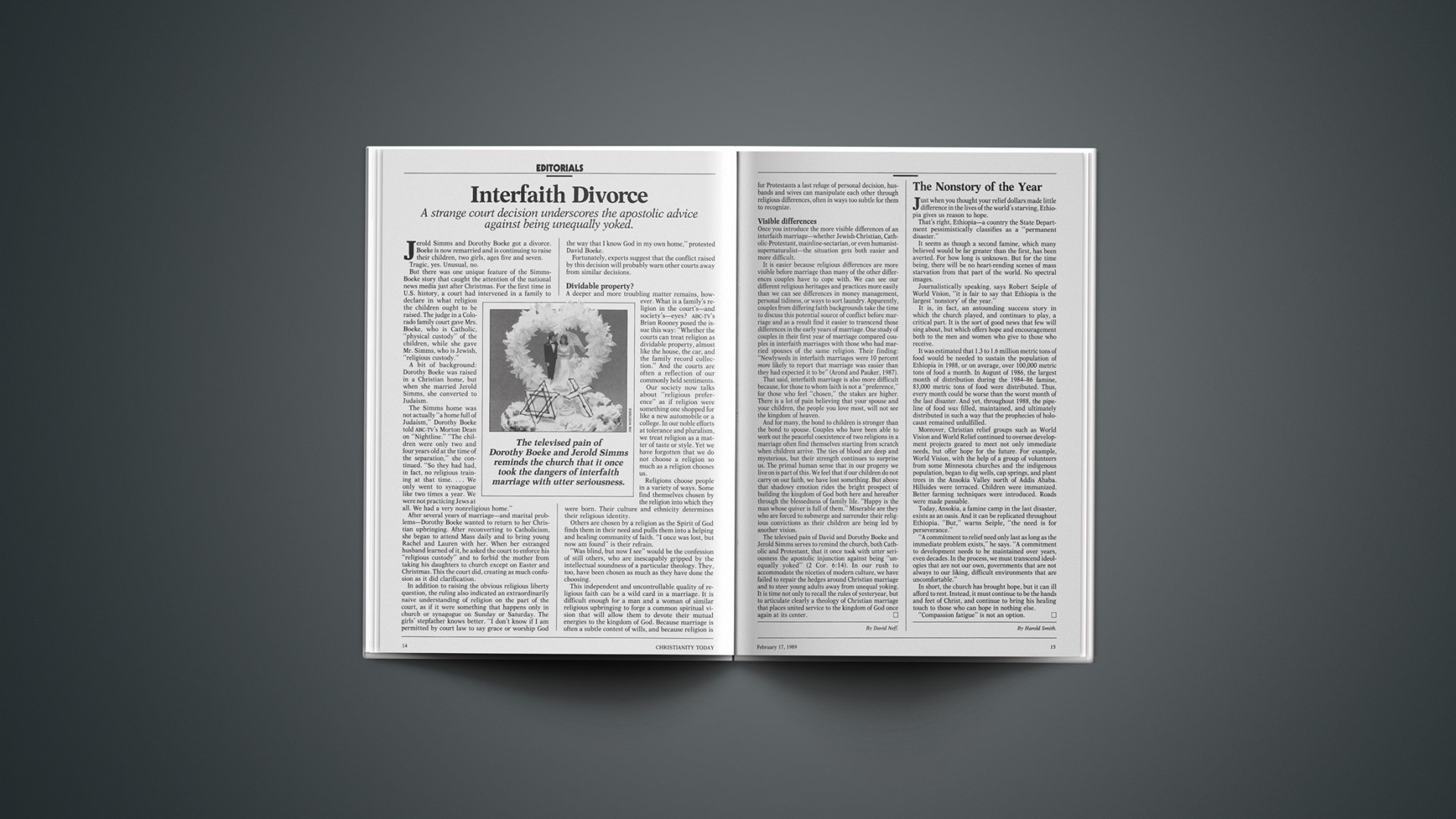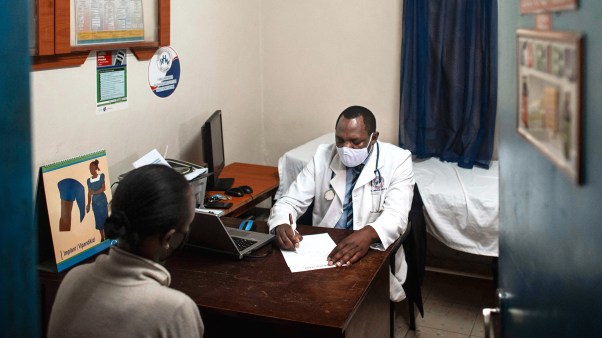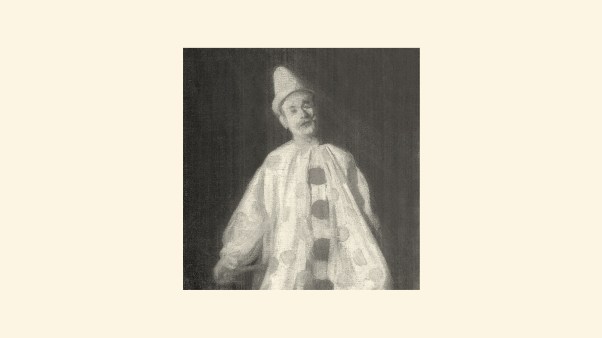RUTH A. TUCKER1Ruth Tucker is visiting professor of missions at Trinity Evangelical Divinity School, Deerfield, Illinois. She is author of From Jerusalem to Irian Jaya and Guardians of the Great Commission: The Story of Women in Modern Missions (Zondervan)
In 1959, after seven years of missionary service in the Baliem Valley of Papua New Guinea, Dorie and Lloyd Van Stone faced a wrenching decision. Their young son, Burney, had not adjusted to the boarding school that he was required to attend. He was severely depressed, and after a visit home, had to be tom from his mother’s arms and taken back to the school against his will. The Van Stones decided they could not sacrifice their son’s well-being for the sake of their work—an attitude that was then an exception to the rule. There was no alternative but to leave the mission field.
Today family concerns are paramount in the minds of potential missionaries and missionaries already on the field. And the plight of missionary kids (MKS), once a peripheral issue, has become a key factor in shaping the future of world evangelism.
Mission board representatives find that the first question prospective couples often ask relates to the well-being and education of their children. “When I first began doing recruiting in the early 1980s, the subject rarely came up,” says Hal Olsen, a representative for the Africa Inland Mission. “Now it comes up all the time.”
Young parents schooled in sermons and radio broadcasts of “family theology” are having second thoughts about bringing up their children in the uncertainties of a foreign environment. “The notion is popular among today’s younger missionaries that being overseas during the years of childhood and adolescence will hurt the child,” observes Ted Ward, dean of international studies at Trinity Evangelical Divinity School. Though his extensive research on intercultural education has convinced him otherwise, Ward says much of the parents’ anxiety derives from “a negative view of the intercultural experience.” “Americans in general,” he says, “are linguistically and culturally narrow.”
In fact, many missions leaders are concerned by what they perceive to be an almost exclusive emphasis on the health of the family and the individual. “Family has become god in many churches, thereby throttling many potential missionaries,” writes Evangelical Missions Quarterly editor James Reapsome. “Some churches are putting the married state, home comfort, and the education and happiness of children before world evangelization.”
School Days
At the center of the MK issue is education. What is the best system of MK schooling? For much of this century, the predominant answer in many areas of the world has been boarding schools. This approach allows parents to be with children at least once a year, and in some cases as often as three or four times a year if the school runs on a schedule of three months of classes followed by one month of vacation.
Boarding schools were developed as a welcome alternative to sending children to their home country for education, but such schools have not been accessible to all missionaries. In some cases, this deficiency has created painful family upheaval.
Marlene Hess, who teaches at Michigan State University, was raised as an MK in Liberia. In the late 1950s, when she was 12 years old, her parents returned to their mission work, leaving Marlene and her two sisters with a family they met for the first time only one day before the separation. Her 10-year-old brother was sent to live with another family. Between sixth grade and high school graduation, Marlene spent only one year with her parents.
For Marlene and her family, there was no time for tears and feelings of self-pity. God’s will came first, and God’s will meant long separations. During those years she suppressed the pain, but the emotional stress surfaced during her college years and took a heavy toll. Her mother, too, suppressed anxiety until, in the late 1960s, she and her husband were forced to leave the field due to what was whispered about as a “nervous breakdown.”
In an effort to avoid such situations, MK boarding schools have grown in size and number over the years. Studies of boarding schools offer mixed reviews, but the schools nevertheless have a reputation for offering high-quality education. Weaknesses arise in staffing and funding. Teachers are typically volunteers who raise their support, and thus their services are often welcomed whether they are qualified or not. Many have no training to work with transcultural kids, and their term of service is often only one or two years.
Another weakness frequently cited is the “compound mentality” that the environment can foster. MKS can become so involved in their own small community that they lose awareness of the nationals living close by. And the nationals sometimes resent the massive expenditure of money—by their standards—on boarding-school children, when their own children attend poorly constructed and underequipped facilities. Thus boarding schools can be perceived as a form of elitism.
Boarding-school education is simply not suitable for every child or every family. (For instance, the Van Stones’ older daughter adapted well to boarding school.) And it has been the subject of bad press. To counter the negative image, many missionaries raised in boarding schools have responded defensively, which has served to polarize the issue.
On one side are those who, like a visiting speaker at Western Baptist Seminary in Portland, Oregon, feel that missionaries who send their children to boarding schools are out of the will of God. On the other side, some MKS brand those who complain about alienation and loneliness “a bunch of crybabies!” as one wrote in a recent issue of Simroots magazine. Rhetoric aside, it would be difficult to obtain an accurate survey of the MK response to boarding schools. However, an informal, anecdotal survey seems to show that for every one MK who has bad memories of boarding school, there may be two or three who sing its praises.
Satellite Sessions
Fortunately, today there are many options for MK education, options that didn’t exist a century—or even a generation—ago. These offer approaches to accommodate virtually every personality type and taste. For missionaries working in or near large cities, a variety of private schools that allow children to live at home may be available. These include American schools (military and civilian), international schools, and non-English-speaking schools, such as a French or German school.
National schools are also an option. Although they can have drawbacks, they offer the greatest opportunity for the MK to identify closely with the culture and people. Other alternatives include home schooling and correspondence studies, or a combination of the two. Here the greatest drawbacks, as with any home-schooling program, are the lack of social and intellectual interaction with peers and the time consumed in parental teaching.
The wave of the future, in the minds of many parents and MK educators, is the satellite or field education system—a program that utilizes computers, itinerant teachers, and regional learning centers where students can assemble periodically. Though still in the early stages of development, such systems have been promoted by Wycliffe Bible Translators and other missions that work in remote areas.
Despite the options now available, however, MK schooling, even at its best, is an aspect of missionary life that can often be filled with frustrations. If the children are in boarding school, they are away too long. If they are in home schooling, they are home too much. If they are in national or international schools, they may find themselves ahead in some subjects and behind in others, and sometimes unprepared for college entrance exams in their homeland.
Problem Or Fad?
Are the problems that MKS confront being magnified simply by overemphasis of the subject? “For those who are inclined to emphasize the hardships and hazards of missionary life, it is easy enough to focus attention on the problems of missionary children,” observes Ward. “Every childhood tantrum, every adolescent pain, every perplexing dilemma of educational choices becomes transformed into an MK problem.”
Some leaders have suggested that the issue is the latest fad in missions, and in the long run it may serve neither the cause of missions in general nor the MK in particular. Still others emphasize that the most crucial element in MK development is not the type of schooling or the degree of cross-cultural adjustment required, but rather the family world view, its perspective of the world.
Parents, of course, are most influential in the formation of this family world view, molded to a large extent by their outlook on life. Their perception of God; their relationships with each other, their children, the culture, the mission organization, and their co-workers; their style of problem solving, showing affection, sharing responsibilities, and using leisure time—all these factors have a profound influence on a child’s development. And they account to a large extent for the MK’s attitude toward his or her unique lifestyle.
Miriam Adeney, who teaches cross-cultural ministries at Seattle Pacific University and Regent College and served as a missionary in the Philippines, advises missionary parents to encourage their children “to look for things they can appreciate in their new culture,” such as colorful festivals, foods, family lifestyles, and intriguing art, music, drama, and poetry.
Missionary parents can make times of separation less difficult by openly expressing painful emotions of fear and anxiety, says Frances J. White, a clinical psychologist at Wheaton College Graduate School and a former missionary to Africa. When children are not verbally expressive, she says, parents must “try to read behind their words.” Letting MKS know their parents understand what they are going through “assures them that they have been heard and understood.”
White also encourages families to celebrate farewells and homecomings with parties—to make them celebrations to anticipate and to look back on with fond memories. She emphasizes proper mental preparation ahead of time for such changes, and recommends that parents schedule a period of transition to buffer what otherwise might be a sudden culture shock.
Testing the MK Stereotype
Are MKS misfits? The stereotype persists that missionary kids, because they grow up in two (or more) cultures, have difficulty assimilating into either one.
But is the image accurate? The question has prompted an increasing amount of research in recent years, while response to the perceived needs of MKS has spawned a growing list of organizations and networking groups.
Many recent studies have been commissioned by mission boards, but the vast majority consists of independent graduate research. Though these studies approach the MK question from different angles, many offer similar conclusions: that MKS do struggle with social adjustment.
One such finding was recorded recently in a master’s thesis submitted to the Wheaton College Graduate School, “A Study of the Psychosocial Development of Adult MKS.” In that study, Karen Wrobbel examined nearly 300 adult MKS. She concluded: “The finding that psychosocial development was lower for the MKS in this study was an unexpected, or at least unhoped for, finding. The data indicate that the adult MKS studied, while having much positive resolution, are not resolving the development crises … as successfully as their monocultural counterparts.”
Other studies also suggest MKS have lower self-images than their peers.
But while research supports some notions about MKS, it disproves others. For example, the idea that boarding school has a negative effect on missionary children has not held up. One study found self-esteem higher among boarding-school MKS who had spent more years separated from their parents than among those who had spent fewer years away from their parents.
Another study indicated higher self-esteem was found among MKS whose postadolescent years were spent at a boarding school, compared with nonboarding-school MK peers. Wrobbel found that MKS who had spent most of their growing-up years overseas were better adjusted socially than those who had spent only one or two terms abroad.
Another common theme found in studies of MKS is that they tend to be high achievers and intellectually more advanced than their non-MK peers. This conclusion has been widely assumed for decades, but only recently has it gained statistical support.
More in the future
Studies currently in progress promise even broader understanding of the MK “problem.” For example, a comprehensive graduate-study project was recently initiated at the University of Tennessee to examine dysfunction in missionary families.
Probably the most far-reaching research effort is being undertaken by a research team headed by Leslie Andrews, associate dean of Alliance Theological Seminary, Nyack, New York. This team is made up of individuals from several mission organizations and is known by its acronym MK-CART/CORE (Consultation and Research Team/Committee on Research and Endowment). This long-term research program includes six phases, the first two involving a thorough analysis of MK schools worldwide. More than 5,000 hours’ worth of data from 18 schools has already been collected from the first phase alone.
One of the most publicized research and networking endeavors is the International Council on Missionary Kids. There have been two ICMK councils to date—in Manila (1984) and Quito (1987). Both focused on alleviating the negative side of the MK experience through more effective care giving.
One major aspect of care giving is re-entry assistance. In 1986, Interaction, Inc., an organization headed by David Pollock of Houghton College, sponsored the first of its CORE (Consultation on Re-Entry) seminars, designed to research problems related to MKS’ re-entry into their native culture and to recommend ways to alleviate those problems.
As these and other projects clarify the profile of the MK and his or her needs, churches and mission agencies will be better prepared to meet the increasing demands for family well-being on the mission field.
By Ruth A. Tucker.
Sons and Daughters of the Pioneers
Prior to the modern mission period, which began around 1800, the “MK issue” was virtually nonexistent. During the centuries of Roman Catholic missions, missionaries took the vow of celibacy. Even many of the earliest Protestant missionaries, such as the great Frederick Schwartz, who served 40 years in India during the eighteenth century, were single.
But beginning with William Carey, questions of what to do with missionary kids emerged. Dorothy Carey was mentally ill during most of her years in India, and the Carey children often had to fend for themselves. Their wayward behavior was a source of concern to one fellow missionary, who believed the fault lay with their father: “The good man saw and lamented the evil, but was too mild to apply an effectual remedy.”
For other great pioneer missionaries, their greatest trials often involved the death of little ones or the years of separation when their children returned to the homeland for education. Adoniram and Ann Judson lost two children before Ann herself died. Adoniram’s second wife, Sarah Boardman, was a widow with a young son, whom the Karen people affectionately called “Little Chief.” When he was six years old, Sarah sent him back to America for his education. The separation was surely traumatic for this little boy, whom his mother described as having “a clinging tenderness and sensitivity which peculiarly unfitted him for contact with strangers.” Sarah had eight more children by Judson, but died before she could see “Little Chief” again.
The mouths of babes
Despite the difficult circumstances so often associated with MKS of earlier generations, there is evidence that many of these children went on to become well-adjusted adults. For example, of the five children of Adoniram and Sarah Judson who survived to adulthood, two became ministers, one a medical doctor, and one the headmistress of an academy. Another served honorably in the Union Army until he was disabled in battle.
Still, many MKS of past generations did resent their circumstances. The son of Alexander Duff, a Scottish missionary to India, was left as an infant with a “widow lady” when his parents returned to the field. On their homecoming 11 years later, he was immediately drilled on his catechism by his father, who rebuked him, saying, “The heathen boys in my Institution in Calcutta know more of the Bible than you do.”
During the four-year furlough, the boy and his mother bonded almost as though they had never been separated. The parting in 1855, from young Duff’s perspective, was a mixture of sorrow and anger: “I … well remember how my mother’s and my own heart were wellnigh breaking, and how at the London Bridge my father possessed himself of the morning Times, and left us to cry our eyes out in mutual sorrow.… A sadder parting as between mother and son there never was. The father buried in his Times … parted from the son without any regret on the latter’s part.”
Another MK whose childhood was marred by painful separations was Ida Scudder, whose father was one of a longline of Reformed Church medical missionaries to India. When she was 12, her father returned to India following his furlough, and two years later her mother joined him. Ida had to be torn from her mother, who was taken by relatives to a Chicago train station while Ida sobbed uncontrollably in her mother’s empty pillow. Although Ida vowed she would never become a missionary, she later returned to India to become one of that country’s most distinguished missionary medical doctors.
Birth of the boarding school
When C. E. Hurlburt, general director of the Africa Inland Mission, arrived in Kenya in 1901 with his wife and five children, he shocked many old-timers. But he insisted that family life was paramount and was determined to have an MK boarding school on the field close enough for parents to spend time with their children three or four times each year. All of Hurlburt’s children later became ATM missionaries to Kenya. And the school he founded, Rift Valley Academy in Kijabe, Kenya, has since become one of the largest and best-equipped MK boarding schools in the world.
It is paradoxical that the MK boarding school, the institution that has become so controversial today among missionary parents, was initiated for the purpose of strengthening family ties and avoiding the long separations that created turmoil in families.
By Ruth A. Tucker.
In Their Parents’ Footsteps
MKS themselves have widely differing viewpoints on their own unique lifestyle, and its advantages and disadvantages. One MK now in her 50s looks back with bitterness. As a child, she felt abandoned during the long separations and resented the sacrifice she had to make for a ministry to which her parents—not she—were called. In spite of her experience, she has continued in the faith, but she is the only one of her family’s four children to do so.
Rosie Roth, who has served as a house parent for MKS in Nigeria, points out that time spent with parents can be as difficult as separations. She recalls one teenage girl who returned from a vacation with her parents in a deep depression. Roth spent extra time with her, and finally the girl poured out her heart. “As I gathered her in my arms,” Roth says, “the sobs came, and so did the real cry of her heart: ‘Dad didn’t have time for me, he didn’t have time! He was so busy with his work, and I know that is why he came. But I need him, too!’ ”
Other MKS, however, present an entirely different view. Tammy Carlson, a seminary student at Trinity Evangelical Divinity School, has fond memories of growing up in Singapore. She always thought she had led a normal life, until she became the center of curiosity in a Sunday school class while home on furlough. Her “normal” life has included travel to Italy, Switzerland, Germany, the Netherlands, England, Japan, Hong Kong, Taiwan, the Philippines, Malaysia, Guam, Western Samoa, New Zealand, Australia, Egypt, and Israel, as well as living in Singapore. She is now preparing for mission service herself.
Following in their parents’ footsteps is not uncommon among MKS. Steve Richardson, son of Don Richardson of Peace Child fame, grew up in Irian Jaya. When he was a baby, his father left in a dugout canoe to make contact with the Sawi tribe. Steve, a graduate of Columbia Bible College, is following a similar calling and is himself initiating a work—with his wife, Arlene, also an MK—to another unreached tribe, the Sundanese of West Java in Indonesia.
New World
Just as changing attitudes toward the family have reshaped the attitudes of missionary parents, the changing face of world missions has created new MK questions, and has offered | some answers as well.
One of the most important changes is that the MK issue today is no longer limited to Western missionaries. As more non-Western Christians serve cross-culturally, the MK situation becomes more complicated. For example, Joshua and Hiroko Ogawa, Japanese missionaries who have served in Indonesia and Singapore, chose not to send their daughters to the Chefoo Boarding School, where other OMF (Overseas Missionary Fellowship) MKS were educated, because they feared they would lose their Japanese identity. Instead, they sent them to national schools and supplemented their education with Japanese correspondence courses. Both daughters have returned to Japan for their high school studies.
tieth century, however, also holds opportunities for family togetherness that have been largely ignored in the past. For more than a century, missionaries have been passing through the teeming, world-class cities on their way to tribes in sparsely populated areas. Today, as more and more tribal people immigrate to urban areas, the needs there are greater than ever. In those cities, missionaries have almost limitless opportunities for ministry and for a lifestyle that does not require children to live away from home. Perhaps, had the Van Stones been commissioned to Buenos Aires instead of the Baliem Valley, they might never have been caught in the dilemma of choosing between what was best for their child and what was best for their ministry.
What conclusions can be drawn about the life of an MK? Surveys done over the years indicate that the vast majority of MKS, despite their frustrations, would not have chosen a different lifestyle. Perhaps the situation can best be summed up by saying that by its very nature, the life of an MK has potentially negative side effects—especially if parents are not attuned to the child’s needs—but at the same time it offers tremendous opportunities not found in other vocations. Family bonds and the well-being of children need no longer be sacrifices inherent in missionary work. As the nature of missionary work changes to meet a changing world, families can find new ways to fulfill Christ’s Great Commission—together.










